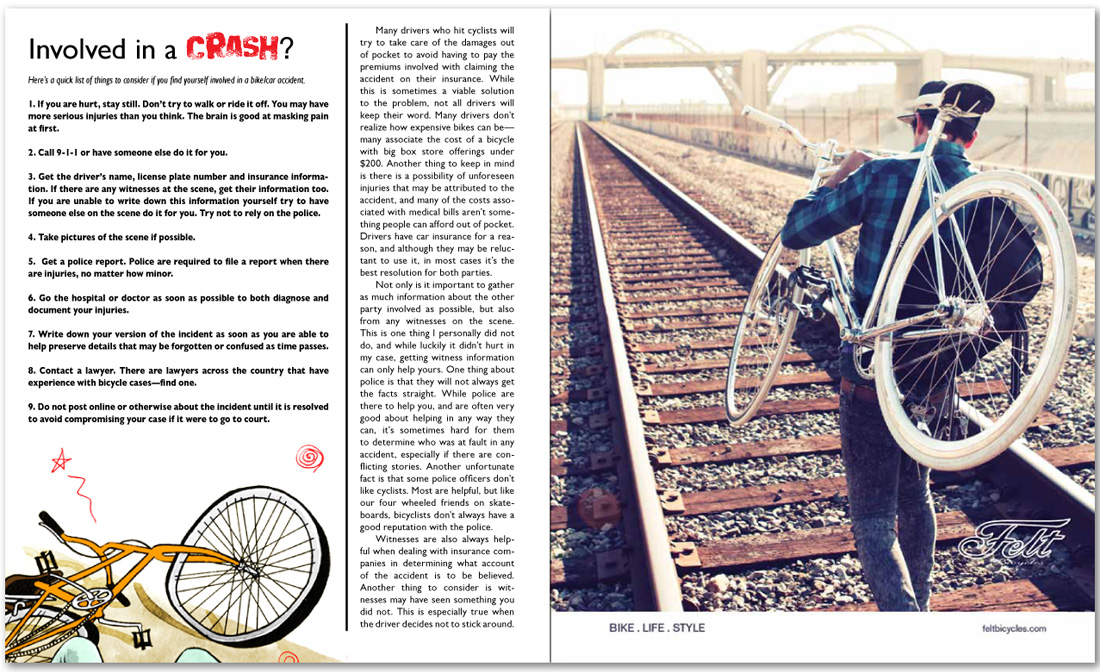


Many drivers who hit cyclists will try to take care of the damages out of pocket to avoid having to pay the premiums involved with claiming the accident on their insurance. While this is sometimes a viable solution to the problem, not all drivers will keep their word. Many drivers don’t realize how expensive bikes can be—many associate the cost of a bicycle with big box store offerings under $200. Another thing to keep in mind is there is a possibility of unforeseen injuries that may be attributed to the accident, and many of the costs associated with medical bills aren’t something people can afford out of pocket. Drivers have car insurance for a reason, and although they may be reluctant to use it, in most cases it’s the best resolution for both parties.
Not only is it important to gather as much information about the other party involved as possible, but also from any witnesses on the scene. This is one thing I personally did not do, and while luckily it didn’t hurt in my case, getting witness information can only help yours. One thing about police is that they will not always get the facts straight. While police are there to help you, and are often very good about helping in any way they can, it’s sometimes hard for them to determine who was at fault in any accident, especially if there are conflicting stories. Another unfortunate fact is that some police officers don’t like cyclists. Most are helpful, but like our four wheeled friends on skateboards, bicyclists don’t always have a good reputation with the police.
Witnesses are also always helpful when dealing with insurance companies in determining what account of the accident is to be believed. Another thing to consider is witnesses may have seen something you did not. This is especially true when the driver decides not to stick around.
Involved in a Crash?
Here’s a quick list of things to consider if you find yourself involved in a bike/car accident.
1. If you are hurt, stay still. Don’t try to walk or ride it off. You may have more serious injuries than you think. The brain is good at masking pain at first.
2. Call 9-1-1 or have someone else do it for you.
3. Get the driver’s name, license plate number and insurance information. If there are any witnesses at the scene, get their information too. If you are unable to write down this information yourself try to have someone else on the scene do it for you. Try not to rely on the police.
4. Take pictures of the scene if possible.
5. Get a police report. Police are required to file a report when there are injuries, no matter how minor.
6. Go the hospital or doctor as soon as possible to both diagnose and document your injuries.
7. Write down your version of the incident as soon as you are able to help preserve details that may be forgotten or confused as time passes.
8. Contact a lawyer. There are lawyers across the country that have experience with bicycle cases—find one.
9. Do not post online or otherwise about the incident until it is resolved to avoid compromising your case if it were to go to court.
Felt